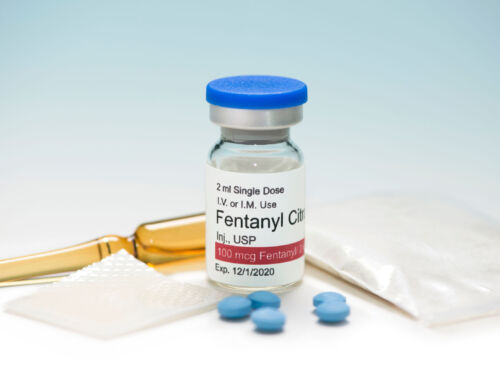Drug and Alcohol Detox Center
Mental disorders and substance abuse are both debilitating and challenging conditions to navigate–especially when they occur together. Although the relationship between mental disorders and substance use is complicated, research shows that there is an undeniable connection between the two.
According to data from the Substance Abuse and Mental Health Services Administration, nearly 9 million people have a co-occurring disorder, and based on research conducted by the Journal of the American Medical Association, approximately 50 percent of those affected by a mental health disorder are also affected by substance use. Numbers like these are impossible to ignore, and understanding the relationship between mental disorders and substance abuse is essential for correctly treating patients who are experiencing these conditions and helping them get on the path toward recovery. So why do mental disorders coexist so commonly with substance use and how can individuals affected by these conditions find relief? Here’s what you need to know:
What is Comorbidity?
To begin to understand the relationship between mental disorders and substance abuse, it’s important to first understand the concept of comorbidity. Comorbidity occurs when two conditions, such as substance abuse and a mental health disorder, exist at the same time in the same person. While comorbidity does not necessarily mean that one condition causes the other, it is important to understand how these conditions interact with each other. For example, when substance abuse and a mental health disorder occur at the same time, one often exacerbates the symptoms of the other, magnifying the effects of two already debilitating conditions.
So why does comorbidity occur so frequently between substance use and mental health disorders? Although the issue is complex and multi-faceted, there are a couple of reasons that experts suspect may contribute to this:
- Both conditions affect the brain: Addictions often cause the brain to be rewired, meaning it doesn’t function the same way as it did before. These differences can impact the occurrence and extent of mental health disorders.
- Both conditions result in changes to the frontal cortex: The changes caused by both substance use and mental health disorders occur in the frontal cortex of the brain. Although the significance of this is complex, it does mean that it’s not surprising that the two often coexist.
Why Do Substance Use and Mental Health Disorders Coexist?
Although the comorbidity between substance use and mental health disorders is undeniable, understanding how and if one disorder caused the other is a different issue altogether, and trying to unpack the issue can lead to a lot of blurry lines. However, there are certain factors that may influence the relationship between substance use and mental health disorders to keep in mind. According to the National Institute on Drug Abuse, here are a few of the factors that may attribute to this:
Self Medication
Certain addictive substances can provide temporary relief from the symptoms of a mental illness. For this reason, those suffering from a mental health disorder sometimes turn to substance use in an effort to self-medicate. While these substances may provide temporary relief, unfortunately, the effects are short-lived and the substance use often quickly develops into an addiction.
Overlapping Symptoms
Another reason that substance use and mental health disorders often coexist is that these conditions often cause symptoms that are characteristic of the other. For example, some drugs induce psychosis.
Predisposition
Research also indicates that those suffering from both substance abuse and mental illness are often predisposed to the conditions, whether as a result of early childhood trauma, genetic factors, or naturally occurring deficits in the brain. In fact, certain genetic factors have been linked to a predisposition for certain mental illnesses, while experts estimate that between 40 and 60 percent of a person’s likelihood to develop an addiction can be attributed to genetic factors.
Exposure to Trauma
Data also shows that those who have experienced high levels of trauma, or who are suffering from depression or Post Traumatic Stress Disorder (PTSD), are much more likely to develop a substance abuse disorder than those who have not been exposed to these levels of trauma. This is best seen in the high rates of veterans who struggle with mental illness. Studies indicate that nearly half of all veterans suffering from PTSD also have a substance abuse problem.
Age
Age also plays a significant role in the co-occurrence of a substance abuse problem and a mental health disorder. Teenagers, for example, are prone to taking risks and engaging in impulsive behavior. At the same time, their brains are not fully developed. These factors affect the likelihood of developing both an addiction to a substance and a mental health disorder.
Why Are Mental Health Disorders and Substance Abuse Difficult to Diagnose?
Diagnosing one or both conditions in a patient who is suffering from both a mental health disorder and substance abuse is often difficult and complex. Let’s take a look at some of the reasons for this:
- Similar symptoms: The symptoms of mental health disorders and substance abuse are often either similar or overlapping, which can make the presence of both disorders difficult to detect. Additionally, the symptoms of both mental health disorders and substance abuse often range in level of severity. Because these disorders may express themselves in such unique ways from patient to patient, they can be difficult to recognize, diagnose, and treat.
- Risky behavior: Individuals suffering from a substance abuse disorder often engage in risky or dangerous behavior, resulting in jail time, homelessness, or even suicide. These factors add an extra layer of complexity, making it difficult for these patients to get the help they need. As a result, these patients are often left undiagnosed.
- Lack of sufficient training: Finally, some individuals may remain undiagnosed due to a lack of training among medical professionals. Because these conditions are so complex (especially when they occur together), many conditions are left undiagnosed.
How to Treat Co-Occurring Substance Abuse and Mental Health Disorders
When substance abuse and mental health disorders occur together, treating them at the same time is essential for the patient’s outcome. Doctors and other medical professionals can develop an integrated treatment plan that is designed to target both conditions. However, it’s important to keep in mind that when substance abuse and mental health disorders occur at the same time, patients often experience amplified symptoms that can lead to dangerous outcomes if not treated quickly.
Reach Out to Atlanta Detox Center Today
Understanding the connection between mental disorders and substance abuse is essential for correctly treating patients who are suffering from these conditions and helping them get back on the right track. The earlier these conditions and their comorbidity are detected, the greater the chances of recovery are. However, for this to happen, it’s important for medical providers to be aware of the occurrence of comorbidity.
Finally, if you or someone you love is struggling with an addiction, it’s important to get help. Professionals at the Atlanta Detox Center can provide you with the resources, support, and healing you need to find relief. Reach out to Atlanta Detox Center to start your path toward recovery and a brighter future today.







